Turkish, Kurdish and Turkish- Cypriot communities migrated in different time periods and, for various reasons, have different reasons for migration. The increase in the volume of Cypriot migration led to the introduction of restrictive measures by the early 1950s, the more intense phase of Cypriot Turkish migration began after inter-communal strife in late 1963. Aside from economic reasons, the political situation in Cyprus was also an important factor affecting migration patterns until the 1970s. After the de facto partition of the island in 1974, Turkish Cypriots began to return to Cyprus. Since then, their immigration has been on purely economic grounds. It can be said that in the early days of migration during the 1950s, economic crises and political instability were the main reasons for migration from Cyprus to the United Kingdom; now, however, Cypriot expectations of staying in London are related to having an alternative place to live and especially making more money. Indeed, these migrants have strong relations with relatives and friends living in Cyprus in terms of sending remittances and establishing transnational business with people or companies in Cyprus. With these connections, relatives living in Cyprus might depend on migrants living in London for their financial needs. Turkish Cypriots have an important role among Turks and Kurds because the large numbers of Turkish Cypriots who migrated to the UK created the social, economic and cultural environments for the new comers.
Turks from the mainland were the second of the three migratory groups to arrive in the UK. Migration from Turkey can be traced back to the late the 1960s and early 1970s, and was mostly due to economic reasons. The main reason for migration in the late 1960s and early 1970s was economic, and firstly men migrated to the UK to work and earn money. This created the environment for bringing their family. Apart from economic reasons, political issues which occurred in the 1970s can also be seen as contributory factors. For instance, migration increased following the military coup in Turkey on 12th March, 1971. Because of this event, three leaders of the anti-government movement had been hung by the Turkish army and many intellectuals had been tortured and arrested. As a result of this situation, the first political migration from Turkey to the United Kingdom started, with educated young people who established organisational structure and socio-political networks with regards to their political stand in the United Kingdom.
Aside from the military coup in 1971, there was another political clash in Kahramanmaras, a region of Turkey. This conflict was between Sunni-Muslims and Alevi-socialists, a branch of Islam based in Anatolia. In 1978, Sunni-Muslims attacked Alevi people in Kahramanmaras. As a result of this massacre, more than a hundred Alevi people were killed and many villages and houses were destroyed. In the late 1970s and early 1980s, a large amount of Alevi people form Kahramanmaras migrated to the United Kingdom. It was the starting point of Alevi migration from Turkey to the United Kingdom which constructed transnational networks among Alevi people in Turkey, the United Kingdom, and also in Germany. From the mid-1970s onwards an increasing number of Turks started coming to London on their own initiative using their social networks and kin relations.
The third military coup in 1980 must also be recognised as a driving force for Turkish migration to Europe, especially to Germany and the United Kingdom. It was the second wave of migration from Turkey to the United Kingdom. People who migrated after the 80s came from the rural areas of Turkey, and differed from the educated migrants who came to England in the 1970s from the larger cities of Turkey. The military coup in Turkey further motivated not only politically active people, but also those who were disillusioned with economic and political instability, to seek alternative places of work and residence. The process of migration has emerged economic stagnation and political instability. However, the political situation is a more important factor for Turkish migration than for Turkish Cypriot migration. Turkish migrants were motivated by both economic and political reasons, whilst the choice of England as their destination was motivated by their social networks.
Migration from Turkey rose again at the end of 1980s because of the conflict between the PKK and the Turkish government, in eastern and south-eastern Turkey. As a result of this conflict, many Kurds were displaced from their villages and had to migrate to Europe. Both economic and political issues were important reasons for the migration of these communities. However, the political issues also create a separation between Turkish and Kurdish people that has continued to affect their migration in the UK. Because of the political history, these communities are divided into opposing groups, reflected in everyday life by their settlement patterns and organisational structures. For instance, all of these three communities have their own organisations to support their political and cultural stance which tends to create separation among community members.


 Enfield Labour welcomes new court order to stop antisocial behaviour in Edmonton Green
Enfield Labour welcomes new court order to stop antisocial behaviour in Edmonton Green David Lammy arrives in Downing Street after becoming deputy prime minister
David Lammy arrives in Downing Street after becoming deputy prime minister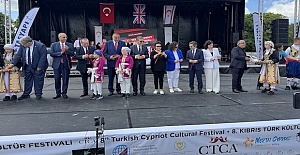 CTCA UK Condemns the Political Forcing Out of Afzal Khan MP for Engaging with Turkish Cypriots
CTCA UK Condemns the Political Forcing Out of Afzal Khan MP for Engaging with Turkish Cypriots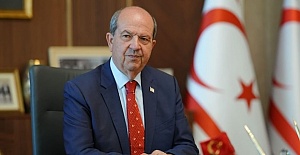 Tatar: “Reaction to MP’s TRNC visit is yet another stark example of the Greek Cypriot leadership’s primitive and domineering mentality”
Tatar: “Reaction to MP’s TRNC visit is yet another stark example of the Greek Cypriot leadership’s primitive and domineering mentality” Latest! Israeli navy intercepts Global Sumud Flotilla as it approaches Gaza to break siege
Latest! Israeli navy intercepts Global Sumud Flotilla as it approaches Gaza to break siege Enfield Labour Calls for Public Feedback on Crime and Safety Concerns
Enfield Labour Calls for Public Feedback on Crime and Safety Concerns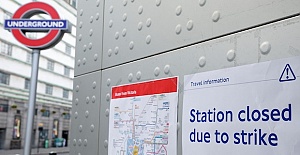 Important Travel Updates: London Underground and DLR Strike Action
Important Travel Updates: London Underground and DLR Strike Action Team Enfield ranks fifteenth the in London Youth Games
Team Enfield ranks fifteenth the in London Youth Games Champions League, Liverpool lose at Galatasaray
Champions League, Liverpool lose at Galatasaray Liverpool flew out for their Champions League match against Galatasaray
Liverpool flew out for their Champions League match against Galatasaray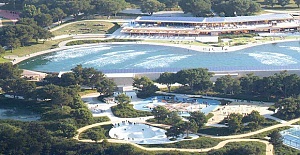 Enfield Council has approved plans for Surf London
Enfield Council has approved plans for Surf London Zlatan Ibrahimović receives UEFA President’s Award
Zlatan Ibrahimović receives UEFA President’s Award Maritime Finance and Sustainability Take Centre Stage at LISW25 Gala Dinner
Maritime Finance and Sustainability Take Centre Stage at LISW25 Gala Dinner London welcomes traders back to the reopened Seven Sisters Market
London welcomes traders back to the reopened Seven Sisters Market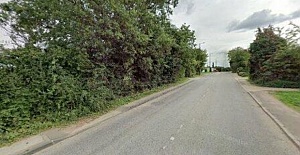 Enfield’s Crews Hill and Chase Park shortlisted for potential New Town
Enfield’s Crews Hill and Chase Park shortlisted for potential New Town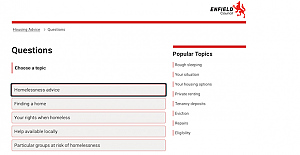 Important milestone achieved with no hotel placements for temporary accommodation
Important milestone achieved with no hotel placements for temporary accommodation















